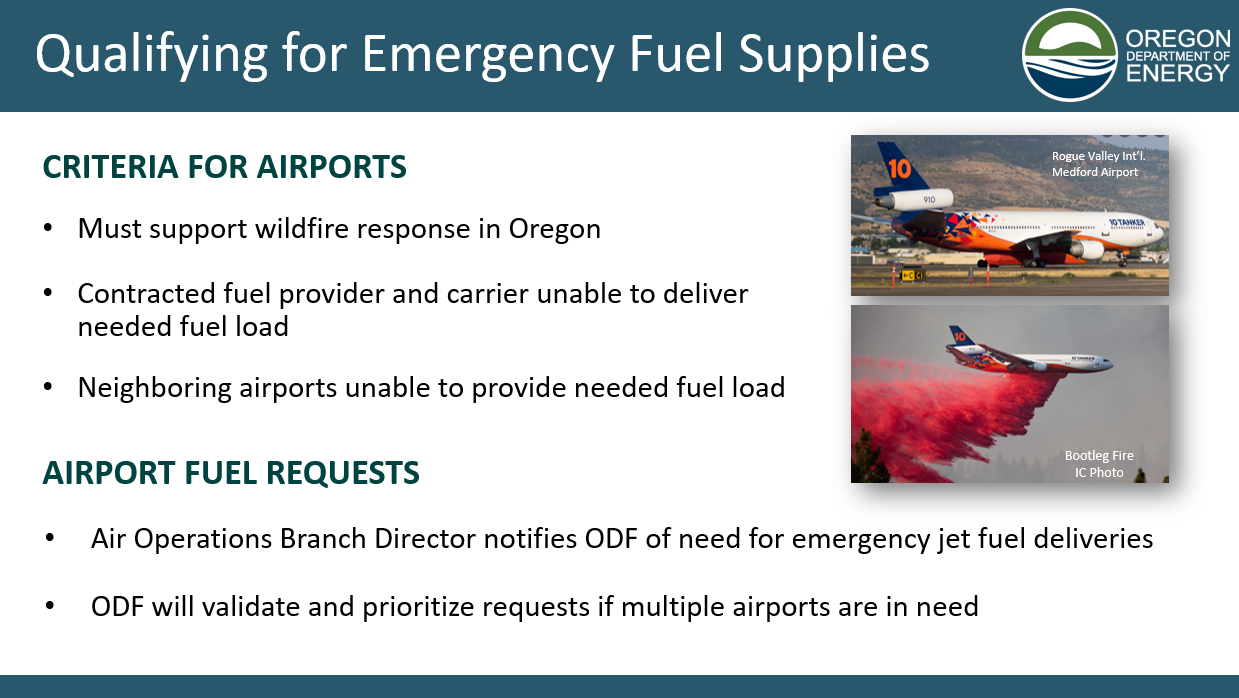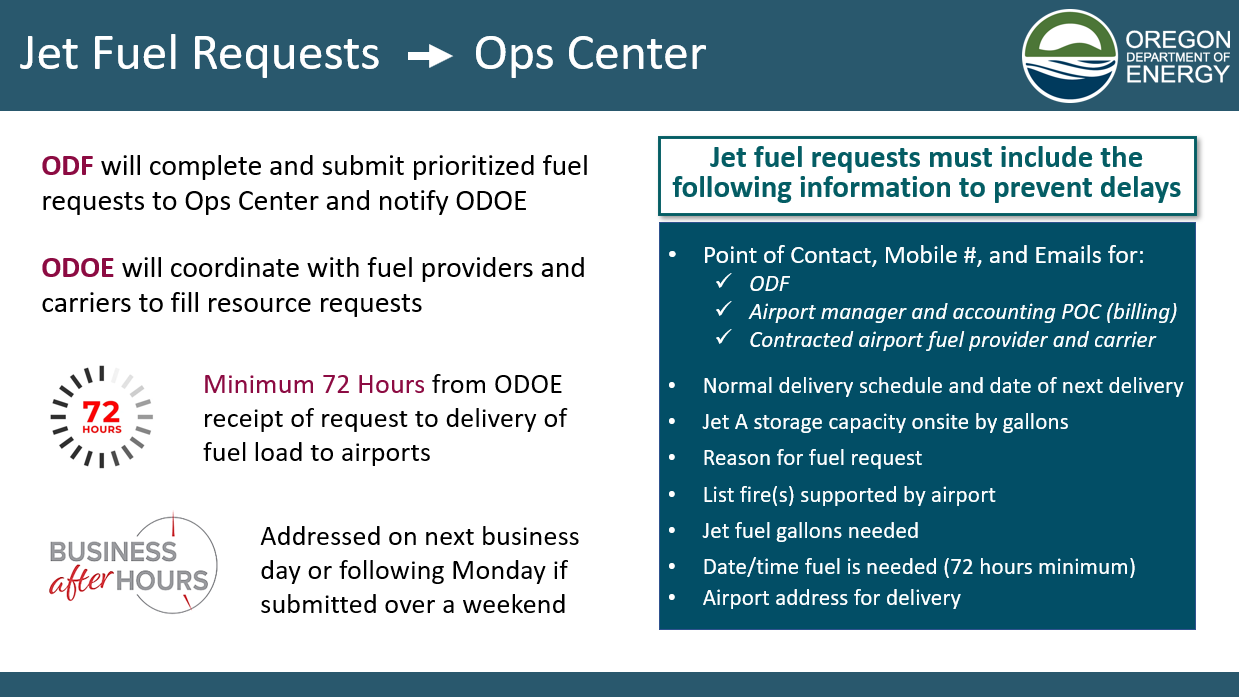Oregon Fuel Action Plan: Emergencies
Wildfire Response
Scientists say hotter and more intense fires are coming to the Pacific Northwest. Wildfires in 2021 required Oregon Department of Energy action to secure jet fuel supplies for the first time in history for local airports supporting statewide wildfire response.
In June 2021, a sudden increase in commercial air travel as the COVID-19 pandemic waned, coupled with an early wildfire season in late spring, resulted in jet fuel supply and distribution problems for smaller airports in southern and northeast Oregon to support wildland firefighting missions. While there was no shortage of jet fuel in Oregon, there were logistical challenges in connecting available supplies with fuel haul trucks and drivers to get the much-needed fuel to those local airports where the demand for jet fuel exceeded local supplies. ODOE worked with state, local, and federal partners, as well as with the private sector, to ensure firefighters had the fuel they needed to continue to fight wildfires.
ODOE and the Oregon Department of Forestry (ODF) established and maintain procedures for activating a federal-state Fuel Coordination Group to monitor and assess jet fuel needs during wildfire seasons. Group members include ODOE, ODF, Oregon Department of Aviation, U.S. Forest Service, and federal Bureau of Land Management.
Group Responsibilities:
ODOE – Works closely with jet fuel providers to monitor and assess jet fuel supply and distribution problems and works with the companies to meet statewide fuel needs for wildfire response.
ODF - monitors statewide fire activity and prioritizes jet fuel needs at air operations bases supporting Oregon wildfire response.
ODA – Coordinates with airport managers to assess jet fuel needs
USFS/BLM monitor regional fire activity and prioritizes federal fuel needs




